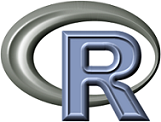last updated: February 23, 2026



COSC 6335: Data Mining in Fall 2024
(Dr. Eick )



Goals of the Data Mining Course
Data mining centers on finding novel, interesting, valid, and potentially useful patterns in data. It aims
at transforming a large amount of data into a well of knowledge. Data mining has become a very
important field in industry as well as academia. The course covers most of the important data
mining techniques, covers the Basics of Data Science, and provides
background knowledge on how to conduct a data mining project.
Topics covered in the course include exploratory data analysis, classification and prediction,
clustering and similarity assessment, association analysis, outlier and anomaly detection, and
interpreting and evaluating data analysis/data mining results. Also basic visualization techniques
and statistical methods will be introduced. Moreover, hands on data mining experience will be
provided in three assignments. You will also get some practical expierence in evaluating data
mining results from you fellow students and data mining publications. Finally, you will learn on how to use and do
programming in the popular statistics, visualization, and data mining environment R. The topics
of the course have some overlap with what is taught in the Machine Learning (COSC 6342) course, to
reduce this overlap the teaching
of this course places a little less emphasis on learning
classification and prediction models (this topic will be covered "more quickly"
and more emphasis will put on Data Science Basics, Exploratory Data Analysis,
Association Analysis, Clustering, Outlier Detection and Data Set Augmentation.
There will be 3 assignments and 2 "paper walkthoughs" in 2026.
There will be 3 group activities in 2026: Assignment2, leading paper walkthoughts, and Group Homework Credit (you find a more
detailed description about group activities below). Comments concerning this website
If you have any comments
concerning this website, send e-mail
to: ceick@uh.edu
Basic Course Information
Instructor: Dr.
Christoph F. Eick
office hours: TU 4-5p TH 9-10a
e-mail: ceick@uh.edu
TA: Janet Anagli
e-mail: jyanagli@CougarNet.UH.EDU
TA office hours: MO+TU 9-10a (on MS Teams)
class meets: TU/TH 2:30-4p
class room: SEC 203
classes taught by others: Likely, February 19
cancelled classes: Likely, March 12
Course Materials
Objectives Data Mining Course
Highly Recommended Text:
- P.-N. Tang, M. Steinback, and V. Kumar: Introduction to Data Mining,
- Addison Wesley, Second Edition, 2019
- Link to
Book HomePage
Recommended Texts:
NIST/SEMATECH e-Handbook of Statistical Methods (good onlne
source covering exploratory data analysis, statistics, modelling and prediction)
2026 Course Organization
I. Introduction to Data Mining
II. Density Estimation
III. Similarity Assessment
IV. Outlier and Anomaly Detection
V. Autoencoders
VI. Data Science Basics and Exploratory Data Analysis
VII. Introduction to Clustering
VIII. Classification: Basic Concepts, Decision Trees and Neural Networks.
IX. Association Analysis: Rule, Sequence, Graph and Collocation Mining
X. Spatial Data Minng
XI. Data Augmentation
XII. Data Storytelling
XIII. Advanced Clustering
XIV. Preventing False Discoveries (Optional Topic)
XV. Preprocessing
Important Course Dates
Thursday, February 5: Assignment1 Lab
Tu., Feb. 24: In-class Activity (30 minutes) and Lockdown Browser Exam Mock Exam (10 minutes)
Thursday, March 5, 11:30a: First Course Exam
March 17+19: no lecture (Spring Break)
Th., March 26: First Paper Walkthrough
Th., April 16: Second Paper Walkthrough
Th+Tu, April 2+7: Task2 Student Presentations
Thursday, April 30, 11:30a: Second Course Exam
 News COSC 6335 (Data Mining) Fall 2026
News COSC 6335 (Data Mining) Fall 2026

- We will have a Mock Exam around 12:15p on Feb. 24; this is followed by a 20 minute group in-class activity! We
also have the Group C GHC presentations, and Group A and B GHC updates from their previous presentation at the beginning
of the Feb. 24 class.
- Lectures through March 3 will center on clustering.
- Assignment1 is due on Fr., Feb. 27 end of the day!
2026 Assignments
Task1: Outlier Detection For a Houston Weather Dataset (second draft; tentative deadline: Feb. 26, 2023 Houston Weather Dataset); Task1 is an individual task and centers on density estimation, autoencoders and outlier detection.
Task2: Group Project (tentative deadline: March 30) centering on classification/prediction and clustering; each group will find an "interesting" dataset and choose their own topic which will be approved by Feb. 20 the latest. Groups will present their Task2 results in presentation April 2 and 7!
Task3: Collocation Mining for a Building Dataset (tentative deadline: April 22). Individual task centering on association analysis which will be posted March 30; task and dataset used might still change!
Tentative Task Weights: Task1: 39%, Task2: 34%, Task3: 27%.
Course Elements and Their Weights
Exams (2): 47% (Exam1 (March 5, 2026): 22%, Exam2 (April 30, 2026): 25%
Assignments (3 tasks): 39%
Group Homework Credit, Paper Walkthroughs, Assignment2 Presentation and Other In-Class Activities : 12%
Attendance: 2%
2026 Group Activities
Groups will perform Assignment2, summarize paper sections and lead discussion in
the two paper walkthoughs, and will make a 13-18 minute group homework credit (GHC) presentation. GHC tasks include
presenting solutions to homework-style problems, leading in-class discussions and demo tools. Each group get a different GHC task.
2026 Group Homework Credit
Group A and Group B Tasks (Group A will present on Feb. 12 and Group B will present on Feb. 17)
Group C Task (will present on Feb. 24)
Group D Task (will present on March 3)
Remarks: Tasks will be assigned at least 4 days before your group's presentation date!
 Dr. Eick's COSC 6335 2026 Lecture Notes
Dr. Eick's COSC 6335 2026 Lecture Notes

I Introduction to Data Mining (Part1, Part2,
Part3--- covers chapter 1 and Section 2.1)
II Data Science Basics / Exploratory Data Analysis (covers
chapter 3 of the first edition of the Tan book)
III R (Arko's Short Intro Into R (used in Lab),
Scatter
Plot Code, Decision Trees in R, Some useful code for Task1 (to be discussed
on Sept. 16),
Some other code for Task2 (not discussed in the lecture),
Computing Statistical Summaries In the Presense of Missing Value (NA) (not discussed in the lecture),
Functions
and Loops in R (useful, but not discussed in the lecture)
IV Similarity Assessment
V Naive, Parametric (MLE Example)
and Non-Parametric Density Estimation
VI Autoencoders (presented by Janet on Feb. 5)
VII Outlier Detection (extended and updated on Feb. 6, 2026)
VIII Clustering: Introduction to Clustering, Density-based Clustering, Hierarchical Clustering,
DENCLUE, EM,
R-scripts demoing K-means/medoids and
DBSCAN and Cluster Validity.
IX Classification (Introduction to Classification: Basic Concepts and Decision
Trees,
Overfitting,
Neural
Networks Part1
(3blue1brown: What is a
Neural Network? (will show the first 12:30 of this video)),
Neural Networks Part2, kNN-Classifiers and Support Vector Machines
X Deep Learning (Introduction to Deep Learning (will watch and discuss some MIT Deep Learning
Bootcamp Videos), Review Neural Network Basics, Autoencoders, Language Models and Convolutional
neural networks (CNN)); taught by Mahin on October 31, 2024 , More on VAEs (not covered in 2023!))
XI Association Analysis: Assiociation Rule Mining,
Sequence Mining.
XII Introduction to Spatial Data Mining
XIII Data Preprocessing for Data Mining (will already be covered in early September)
XIV Advanced Clustering (will cover CLIQUE, FCM and EM)
XV Data Storytelling
Old Webpages of COSC 6335: 2013 and
2009.
In-Class Activity
Feb. 24 Activity (Group Activity; groupsize 4-5)
Data Sets
Complex8
Complex9 with 8% Gaussian Noise Added
Bank Note Authentication
2024 Group Homework Credit and Other In-class Activities
2024 GHC Groups and Contact E-mails
In this activity which will be called group homework credit, each group formed for this activity,
receives a different usually homework-style problem (other tasks include demos, and leading discussions), and
they present their solution during the lecture (10-14 minutes),
and share their solution in form of a
Word or pptx file. The groups and e-mail addresses of the group members have been posted in the 'Group Homework Credit' channel
of this section's MS Team. Below is the old 2024 list of assigned tasks and associated groups and presentation dates;
tasks will be added as we move along with the teaching of the course; 2026 tasks will be posted at
least 5 days before a group's presenation date!
2024 Schedule and Tasks
Group A and B be will present on Sept. 12 and group C will present on
Sept. 17 (Tasks for groups A, B, C)
Group D will present on Sept. 19 and Group E will present on Sept. 26 (Group D and E Tasks)
Group F Task (will present on Th., October 3!)
Group G Task (will present on Oct. 8)
Group H, I, J and K Tasks (Group H will present on Oct. 22, Groups I will present
on October 29, group J will present on Nov. 1 (online) and Group K will present and lead a discussion on November 7)
Group L and M Tasks (group L will present Nov. 14 and group M will present Nov. 19)
Group N Task (will present on November 21)
Another skill that is important is the capability to read, understand and assess the quality of data mining papers. To practice this skill, there will
be two paper walkthroughs (Feb. 26 and March 31) where we will go slowly though a data mining paper---section by section---under the guidance of students who are responsible to summarize a particular section of a paper and lead the discussion of the section they are assigned to.
2024 Exams
Midterm1 Exam (scheduled for Oct. 10, 2024, 2:30p in 203 SEC, Review List,
October 8, 2024 Review for the Midterm Exam, Solution Sketches 2022 Midterm
Exam, Solution Sketches 2023 Midterm
Exam)
Midterm2 Exam (2024 Review List, Nov. 21 Review
for the Nov. 26, 2024 Exam) has been scheduled for Tuesday, November 26, 2024, 2:30p(Some solution
sketches for the 12/09/22 Final Exam; Some solution
sketches for the 12/07/23 Final Exam)
Course exams will be open book/notes paper exams; however, the use of cell phones and
computers during the exam is not allowed; basic calculators are okay.
Midterm1 counts 22% and Midterm2 counts 24% toward the course grade.
Attendance 2024
Attendance counts 2% towards the course grade.
Attendance will be taken starting Tuesday, August 27 throughout the remainder of the semester. Only
F2F attendance counts. Therefore, 24 attendances will be taken
(August (2), September (7), October (9), November (6)). Your number of attendances will be converted as follows into a number grade:
24-23: 92, 22-21: 91, 20-19 :90, 18:88, 17:86, 16:84, 15:81, 14:78, 13:75, 12:71, 11:67, 10:63, 9:59, 8-0:55.
2023 COSC 6335 Grading
Dr. Eick uses the following number grade scale for graduate courses: A: 100-90, A-: 90-85, B+: 85-82, B: 82-77,
B-:77-74, C+: 74-70, C:70-66,C-:66-62, D+: 62-58, D:58-54, D-:54-50, F: 50-0. Exams and Problemsets
are still curved after your exam and task scores
have been determined. Exam scores are curved immediately and problem set scores are normalized, added;
ultimately, your Problemset total is converted at the end of the semester into a number grade which
counts about 48% to the overall number grade score which is then converted into a letter grade.
Number grades higher than 95 are rarely used---except for
truly exceptional performances and outliers; a grade of 95
already represents a letter grade of A+… Exams of graduate courses are usually
curved so that the exam number grade average is in the
range 81-84, depending how well the students performed in the particular exam. Dr. Eick
first determines the class’ performance in the exam and selects an average
and then the exam is curved accordingly.
Number grades do not directly correspond to percentage obtained: for
high percentage averages percentage
will be down graded and for low percentage average percentages will be upgraded.
Comments about COSC 6335 Exams: to reduce the probability of cheating, the COSC 6335 final exam was designed to
be slightly too long. If it turns out that the exam was more than slightly too long, be aware of the fact that all
students took the same exam, and that the final exam is still subject of curving to possibly rectify some problems with
exam length.
In most of Dr. Eick's exams students who score more than 75% of the available points in the exam usually will get a grade of A- or better.
Moreover, I believe that graduate students should be "challenged" to demonstrate their skills during final exams. On the other
hand, this semester's
midterm exam was not very challenging, in my opinion,
and more importaintly is was much too short, encouraging cheating.
Dr. Eick also concluded---after using them a lot for 2 semesters---that multiple choice exams are not appropriate to
assess particular skills, and that often multiple choice exams
test a student's capability with respect to differences in natural language semantics rather than assessing if students actually
understand and can apply what was taught in a course.
Polls
Nov. 19, 2024 Poll about Problemset Tasks and Kritik
2023 Problem Sets
ProblemSet1 (Task1:
Exploratory Data Analysis for a Basel Weather Dataset, Task2: Develop
an Intelligent Tool which Compares Boxplots; individual
tasks; you should read the specification of Task1 by August 30, and should start working on Task1 on
Sept. 5!)
ProblemSet2 (contains Task3 a clustering group task, and Task4 an individual, peer reviewed
outlier detection task)
ProblemSet3(contains Task5, a peer reviewed group task in which you will review a
data mining paper which is due on November 14, 2023; Short Discussion
Concerning Reviewing Data Mining Papers).
2023 Groups for Tasks 3 and 5; Task 1, 2, and 4 are individual tasks!
2023 Weights for the ProblemSet Tasks: Task1:4, Task2:4, Task3:4, Task4:5, Task5:1.5.
2023 Weights of Course Elements: Midterm Exam:21%, Final Exam:27%; Group Homework Credit: 3%; Attendance:2%; Problem
Set Tasks:47%.
Old COSC 6335 News Items
- The order in which topics will be covered in 2026 is quite different from the order the topics were covered
in 2024. Moreover, the peer reviewing tool Kritik, which was used in the course's teaching in 2022 and 2024, will
not be used in 2026. Moreover, in 2026 students will be presenting more and lead discussions in comparison to the 2024 teaching of
the course.
- Due to multiple student requests, the lecture on Tu., Sept. 10 has been cancelled; it will be
made up on Friday, Sept. 27, 1:15p-2:30 (via online lecture via MS Teams).
- We will be taking class attendance starting August 27, 2024.
- The GHC tasks for groups A-E have been posted; see below!
- Please, make sure that your Kritik accounts are active by September 15 the latest.
- Always download documents from the course website, as it always stores the most recent version of
the respective documents.












 News COSC 6335 (Data Mining) Fall 2026
News COSC 6335 (Data Mining) Fall 2026

 Dr. Eick's COSC 6335 2026 Lecture Notes
Dr. Eick's COSC 6335 2026 Lecture Notes
